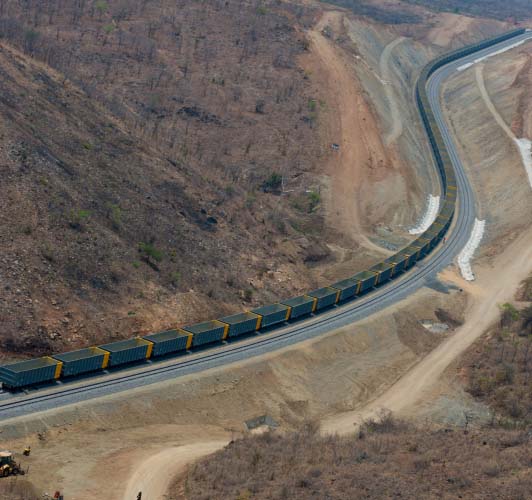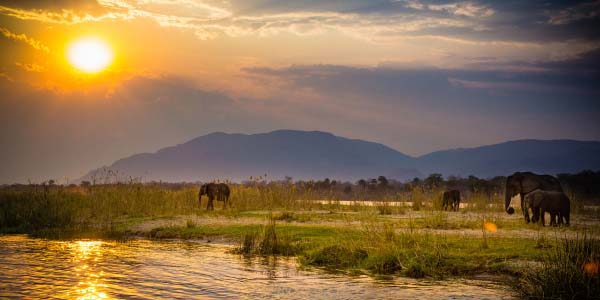Pumping and Dredging Project Consultation in Zambia | Pump and Slurry
In Zambia, pumping, dredging, and dewatering services are indispensable for its primary industries, particularly copper mining and processing, emerald mining, and construction. These services are critical in maintaining operational efficiency and sustainability across these sectors. In copper mining, efficient pumping systems are essential for groundwater control and slurry transport, ensuring continuous operations and minimizing environmental impact. Dredging activities support clearing sediment in water bodies used for mining operations, facilitating safe navigation and resource extraction. Dewatering services are crucial in both copper and emerald mining, managing groundwater to prevent flooding in underground operations and ensuring worker safety. In construction, these services aid in site preparation, foundation stability, and managing water levels during infrastructure development. Across beverages, chemicals, textiles, and fertilizer industries, these services are vital for managing wastewater, optimizing production processes, and adhering to environmental regulations. Overall, pumping, dredging, and dewatering services are foundational to Zambia’s industrial activities, supporting sustainable growth and economic development in key sectors.

Pumping and Dredging Project Consultation in Zambia
Slurry pumping and dredging projects in Zambia are crucial for sustaining the operations of critical industries such as copper mining and processing, emerald mining, and construction. These projects ensure efficient extraction and transport of minerals and ores, which are essential for maintaining productivity and meeting global demand. Slurry pumping systems facilitate the movement of abrasive materials, which is crucial for processing and refining copper and emeralds. Dredging projects clear sediment and maintain waterways for transporting extracted materials, supporting logistical operations and environmental management efforts. In construction, these projects assist in maintaining water levels, ensuring stable foundations, and infrastructure development. Overall, pumping and dredging projects in Zambia are pivotal for driving industrial growth and maintaining the country’s position as a significant player in the global mining and construction sectors.
The sales and rentals of slurry pumps and dredging equipment in Zambia cater to the diverse needs of ongoing pumping and dredging projects across various industries. These services provide essential equipment tailored to specific project requirements, offering flexibility and cost-effectiveness. Sales of slurry pumps ensure reliable equipment availability for continuous use in demanding environments such as mines and construction sites. Alternatively, rental options allow businesses to manage variable demand and project durations without significant upfront investments. Both sales and rentals of slurry pumps and dredging equipment bolster Zambia’s industrial capabilities, supporting efficient project execution and infrastructure maintenance throughout the country.
Our Services
Consulting Services
Pumping & Slurry Transport
Dredging Consulting
Dewatering
Equipment Sales & Rentals
Equipment Rental
Equipment for Sale
Customization Services
Industries in Zambia Requiring Slurry Pumping, Dredging, and Dewatering
Copper Mining and Processing
In Zambia, copper mining is a cornerstone industry heavily reliant on efficient pumping, dredging, and dewatering. Pumping systems are crucial for controlling groundwater levels and transporting copper ore slurries during extraction and processing. These systems ensure continuous operation and minimize flood risks in underground mines. Dredging activities maintain tailings ponds and reservoirs, which are essential for wastewater and process fluid management. Dewatering systems manage groundwater to prevent mine flooding, ensuring safe conditions and operational continuity. These practices optimize production, reduce environmental impact, and sustain Zambia’s global copper production leadership.
Emerald Mining
For sustainable operations, Zambia’s emerald mining industry depends on efficient pumping, dredging, and dewatering. Pumping systems control groundwater and transport emerald-bearing ore slurries during extraction, minimizing water infiltration into mines. Dredging clears sediment in water channels for emerald transportation and processing. Dewatering systems regulate water levels in pits, preventing floods and ensuring safety and continuity. By employing these practices, Zambia supports economic growth and environmental responsibility in emerald mining.
Construction
Efficient pumping, dredging, and dewatering are vital in Zambia’s construction sector. Pumping systems remove groundwater and manage surface runoff, crucial for excavation and foundation laying. Dredging clears debris from water bodies near construction sites, ensuring drainage and flow. Dewatering systems maintain dry conditions, minimizing delays and water-related risks. These practices enhance construction efficiency, ensuring infrastructure durability and timely project completion.
Beverages
For fluid management, Zambia’s beverage industry requires efficient pumping, dredging, and dewatering. Pumping systems transport raw materials and fluids critical for production, ensuring consistent supply and quality. Dredging maintains water channels for transportation and cooling, supporting operations. Dewatering systems manage wastewater, meeting environmental standards and reducing pollution. These practices optimize beverage production efficiency and environmental stewardship.
Chemicals
Efficient pumping, dredging, and dewatering are essential in Zambia’s chemical industry. Pumping systems facilitate fluid transport vital for chemical processes, ensuring operational efficiency. Dredging clears water pathways for logistics and environmental management. Dewatering systems handle industrial effluents, ensuring regulatory compliance and pollution prevention. These practices uphold operational reliability and environmental sustainability in Zambia’s chemical sector.
Textiles
Zambia’s textile industry relies on efficient pumping, dredging, and dewatering for production processes. Pumping systems manage fluid circulation essential for textile manufacturing, maintaining efficiency and product quality. Dredging maintains water channels for logistics and cooling needs. Dewatering systems manage wastewater, adhering to environmental regulations and minimizing impact. These practices enhance operational efficiency and environmental responsibility in Zambia’s textile sector.
Fertilizer
Efficient pumping, dredging, and dewatering are critical in Zambia’s fertilizer industry. Pumping systems transport raw materials and fluids crucial for fertilizer production, optimizing efficiency. Dredging ensures waterway maintenance for transportation and cooling. Dewatering systems manage wastewater, ensuring compliance and environmental sustainability. These practices support operational reliability and environmental stewardship in Zambia’s fertilizer production.
Our Presence in the Country

Ndola

Lusaka

Kitwe

Livingstone
Conclusion
In Zambia, industries such as copper mining, emerald mining, construction, beverages, chemicals, textiles, and fertilizer rely heavily on the essential roles played by pumping and dredging projects. These projects are integral to maintaining operational efficiency, ensuring environmental sustainability, and supporting infrastructural development across diverse sectors. Efficient pumping systems manage groundwater levels and transport essential materials crucial for mining and manufacturing processes while dredging activities clear sediment and maintain waterways vital for logistical operations. Implementing robust pumping and dredging projects in Zambia facilitates economic growth and industrial expansion and underscores the nation’s commitment to responsible resource management and environmental stewardship. Continued investment in these initiatives is paramount for sustaining Zambia’s industrial competitiveness and fostering sustainable development in the years ahead.






